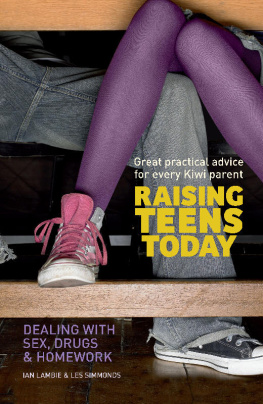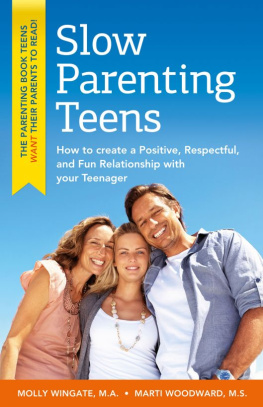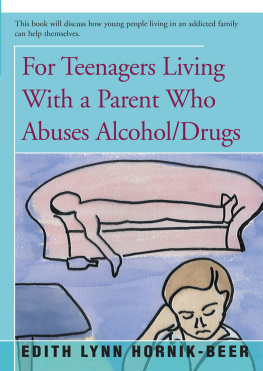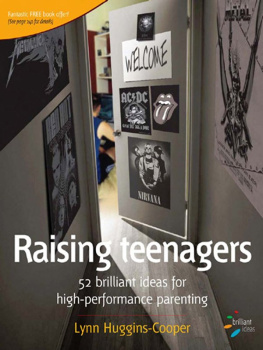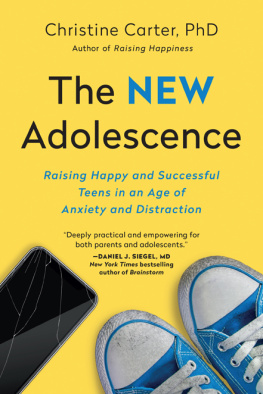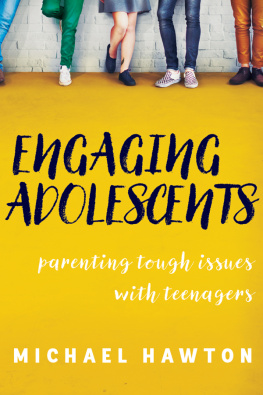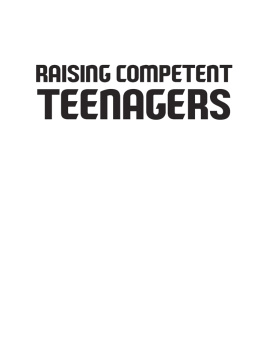would there were no age between ten and three-and-twenty, or that youth would sleep out the rest; for there is nothing in the between but getting wenches with child, wronging the ancientry, stealing, fighting
Shakespeare, The Winters Tale, Act III, Scene III
T eenagers are almost a different species of human being. They are not junior adults. Developmentally, they are a work in progress. Recent research, particularly from the United States, based on MRI scanning of the brain shows that the frontal lobe (which deals with decision making, common sense, wisdom and logic) undergoes a second growth stage beginning at about age 15. This developmental and pruning stage may not be completed until the mid-twenties. Such research simply confirms what we have known instinctively for centuries: adolescence is a volatile stage and dealing with teenagers is challenging and demanding work. Shakespeare was right.
From my privileged position in a front-row seat in the Youth Court of New Zealand I can closely observe, and hopefully play a part in, the rehabilitation of some of the countrys most serious young teenage offenders. About 6,000 young people appear before the Youth Court every year. The number has slowly declined over the last couple of years as youth apprehensions continue to drop. Nevertheless young offenders display some very similar characteristics.
About 83% are male, although the number of young women who offend, especially violently, is increasing. Many, estimated up to 7080%, have drug and alcohol problems; most, up to 70%, are not engaged with school or meaningfully involved in any form of education; many have some form of psychological disorder, especially conduct disorder, and they display little remorse, let alone any victim empathy; many have a history of abuse and neglect and previous involvement with Child, Youth and Family Services; and there is a unacceptably disproportionate rate of Maori apprehensions on average about 50% of all youth offenders.
There is also one other significant and recurring theme among young offenders: and that is the lack of loving, stable, firm and consistent parental support. So many of the young offenders I see come from environments of family abuse, transience and dislocation. Indeed, among the so-called big four risk factors for young people, first and foremost is family disadvantage and dysfunction.
Yet if my experience in the Youth Court teaches me anything it is that not only is family stability so vital but that no family is immune from the challenges presented by teenagers. Teenagers are not puppets and every parent will face times of real desperation as we undertake the task of assisting children to gradually become adults. All of us who are parents need help in this difficult and challenging job. I certainly cannot claim expertise in this field. Indeed I am acutely aware of the need for good advice and input in dealing with my own teenagers. Children are a gift and a great blessing for all of us. And we can all learn to be better parents. With this in mind I think all of us will find this book of real assistance.
The initial chapters dealing with adolescent brain development, the paths of parenting and family dynamics lay a very helpful theoretical framework. I particularly like the tips in every chapter and the encouragement to build strong family dynamics and to encourage better communication skills. And there is surely not a parent in New Zealand who will not appreciate the frank discussions about alcohol and drugs, sex, the internet, depression and suicide, and eating issues. Moreover single parenting is an increasingly common phenomenon in New Zealand and the helpful discussion of common traps and practical approaches to discipline will be reassuring to many who shoulder the burden of parenting alone.
In short, I doubt whether there is a parent in New Zealand who would not benefit from the principles which are reinforced in this book and who would not be assisted by the practical tips, wisdom and insight that the authors provide for us as parents of teenagers. Parenting remains arguably the number one challenge that most adults will ever face and for which we are still the least prepared and trained to undertake.
From where I sit, it seems that there is virtually nothing more important to our communities than building stable and nurturing families and raising balanced and mature teenagers. I applaud the authors of this helpful book for tackling head on what many have called the white water rafting years and for providing such practical, frank and common sense advice.
Andrew Becroft,
Principal Youth Court Judge
To my mother who showed me what courage means, the importance of perseverance and how to love. To my father whom I never met but who gave me my passion for the outdoors and whose spirit lives on in me. And to John who taught me to never to stop believing in myself and who knew that all this was possible.
Ian Lambie
This book is dedicated to my parents, Ann and Fred Simmonds, who grew up in impoverished circumstances and had few role models to help them negotiate raising children and adolescents. With this in mind, they did a great job in raising this difficult teenager and their love and warmth has been, and will continue to be, a beacon in my life.
Les Simmonds
The children of today are tyrants. They talk back to their elders, slobber their food and annoy their teachers.
Socrates (469399BC)
There are a number of children running about the streets of Dunedin without the control of parents. If the government does not take them in hand they will become members of a criminal class.
Otago Daily Times, 1884
Whos afraid of the big bad teenagers oh no, no, not me!
M any parents feel anxious about coping with their childrens teenage years. In fact, many parents feel anxious about being a parent full stop! The first thing to know is that this is normal, and its also normal to doubt yourself as a parent at some stage.
Even when your kids are in their thirties its likely you will still worry about them (though hopefully less!). But as we all know, the teenage years are something a bit different. Its not surprising that we worry about these years given all the horror stories we hear. Other parents warn us of previously docile and compliant children who appear to have undergone a personality change overnight and turned into something like mini-psychopaths becoming sullen, rebellious and moody. There are regular reports in the news of adolescent sex, drug-taking, alcohol consumption and violence, while rates of youth suicide, pregnancy, sexually transmitted diseases and road accidents also feature frequently. Even if you havent been overwhelmed by all the horror stories, you are likely to be facing your childs adolescence with mixed feelings. Adolescence is often a challenging time for both parents and teenagers. However, you can plan to meet these challenges with information and confidence.
Despite rumours to the contrary, adolescence is also a stage in their childrens lives that many parents enjoy at least part of the time. It can be very satisfying to watch your child develop into a young adult, with his or her own special personality and behaviours. It can be fun to do things together while enjoying a more equal relationship.
This book is designed to help you enjoy your childrens teenage years more, while feeling better prepared to cope with any problems that might arise. The teenage years need not be all doom and gloom the majority of teenagers come through unscathed and go on to live healthy and productive lives. If youre unconvinced about this, we suggest you think about your own teenage years and those of the people around you, and see what you come up with.

